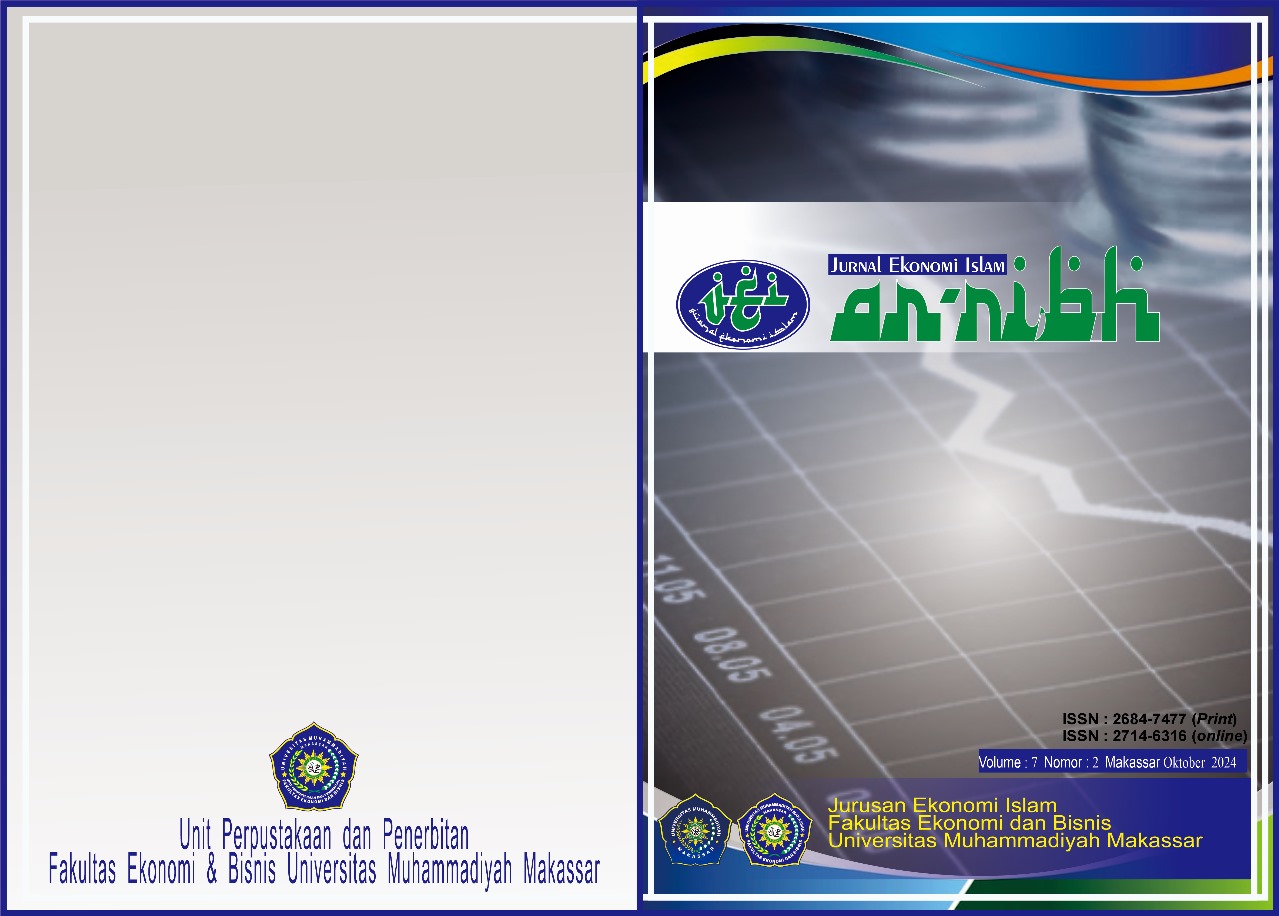Analysis of Employee Wages in The Perspective of Maslahah (Study of Mangnguluang Laying Hen Farm, Kalumeme Village, Ujung Bulu District, Bulukumba Regency)
DOI: https://doi.org/10.26618/qhzkap22
Abstract
Wage analysis is the process of reviewing or reviewing wage decisions or policies made by business actors to compensate their workers for the services provided. One of the analytical techniques used by ushul scholars to ensure that the laws (istinbat) whose problems are not expressly regulated in the Qur'an and Hadith is the maslahah point of view. This study aims to find out how the employee wage system is and how to review the perspective of the employee wage system in Mangnguluang Cattle, Tabuttu Kel. The type of research used is descriptive research, which describes the state of a thing or event that occurred both in the present and in the past. The information in this study was collected through observation and interviews. In this study, qualitative research techniques. The wage system at the Mangguluang Laying Hen Farm implements unilateral wage giving without a clear agreement between employees and management. In the perspective of maslahah, the practice of wages without an employment contract is not allowed because it is not in accordance with Islamic law. All employees said that the salary or wages they received were not enough to accommodate all the needs of daily life. Employees or employees' families have not been able to access higher education. While still united, single couples are able to save for marriage needs but not after marriage, and the same is true in an effort to have assets.References
Aharun. (2023). Manager Ternak Ayam Petelur Mangnguluang, Wawancara Pribadi, 27 Oktober 2023.
Al-Baihaqi. (1944). Sunan al-Baihaqi al-Kubra. Juz VI. Beirut: Dar al-Kutub al-‘Ilmiyyah.
Al-Baihaqi, Bakar, A., & Husain, A. bin. (1990). Sunan al-Baihaqi al-Kubra, Juz VI. Kairo: Dar al-Ma’arif.
Al-Bukhari, Abdillah, A., & Al-Bardizbah, M. bin I. bin I. bin al-M. bin. (1987). Shahih al-Bukhari. Cet. III, Juz II. Bairut: Dar Ibn Katsir.
Diyamuddi, D. (2008). Pengantar Fiqih Muamalah. Pustaka Pelajar:Yogyakarta.
Erwan. (2023a). Karyawan Ternak Ayam Petelur Mangnguluang, Wawancara Pribadi, 27 Oktober 2023.
Erwan. (2023b). Wawancara pribadi. Karyawan Ternak Ayam Petelur Mangnguluang.
Faisal. (2023). Karyawan Ternak Ayam Petelur Mangnguluang, Wawancara Pribadi, 27 Oktober 2023.
Musdajar. (2023). Karyawan Ternak Ayam Petelur Mangnguluang, Wawancara Pribadi, 27 Oktober 2023.
Perundang-undangan, P. (2016). PERPRES No.19 Tahun 2016 tentang Perubahan Kedua Atas Peraturan Presiden Nomor 12 Tahun 2013 Tentang Jaminan Kesehatan. https://peraturan.bpk.go.id/Details/39833/perpres-no-19-tahun-2016 (23 September 2023)
Pratomo, D. S., & Saputra, P. M. A. (2011). Kebijakan upah minimum untuk perekonomian yang berkeadilan: Tinjauan UUD 1945. Economics, 5(2),. Journal of Indonesian Applied, 5(2), 269–285.
Sadondang, P. A., Sondakh, J. J., & Budiarso, N. S. (2015). Analisis Perlakuan Akuntansi Aset Tetap Menurut PSAK No. 16 (Revisi 2011) di RSU Pancaran Kasih Manado. ACCOUNTABILITY, 4(1), 12–25.
Sakki. (2023). Karyawan Ternak Ayam Petelur Mangnguluang, Wawancara Pribadi, 27 Oktober 2023.
Sumarni. (2023). KaryawanTernak Ayam Petelur Mangnguluang, Wawancara Pribadi, 27 Oktober 2023.
Suryani, R. (2018). Analisis Pelaksanaan Hak Tenaga Kerja Pt. Latinusa Terhadap Pegawai Tetap Dan Pegawai Tidak Tetap Tinjauan Yuridis Undang-Undang Nomor 13 Tahun 2003 Tentang Ketenagakerjaan. Jurnal Ilmu Hukum, 1(1), 117–150.
Susilo, M. (2007). Manajemen Sumber Daya Manusia. Yogyakarta: PT. BPFE.
Trimaya, A. (2014). Pemberlakuan upah minimum dalam sistem pengupahan nasional untuk meningkatkan kesejahteraan tenaga kerja. Aspirasi: Jurnal Masalah-Masalah Sosial, 5(1), 11–20.
Ulya, S. I., & Kurniawan, R. R. (2019). Upah Dalam Perspektif Islam.
Yadi, J. (2015). Lembaga Keuangan Syariah. Bandung: Remaja Rosdakarya.
















